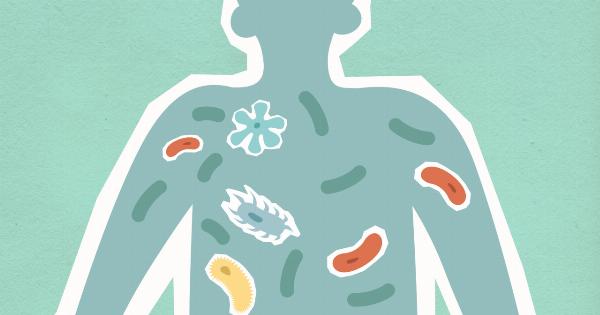Stress is a natural reaction to life’s challenges. It is a normal part of life, and sometimes, it can even motivate us to do more and achieve our goals.
However, when stress becomes chronic or overwhelming, it can start to take a toll on our physical health as well as our mental well-being. In this article, we will explore the physical effects of stress on the body, and what you can do to manage it.
What is Stress?
Stress is the body’s response to any form of demand or threat. When we encounter a stressful situation, our body reacts by releasing hormones such as adrenaline and cortisol.
These hormones trigger the “fight or flight” response, which prepares us to either fight the threat or run away from it.
What are the Physical Effects of Stress?
Stress can affect us in many ways, both physically and mentally. Some of the physical effects of stress include:.
1. Muscle Tension
One of the common physical effects of stress is muscle tension. Stress can cause the muscles in our body to tense up, which can lead to headaches, back pain, and even neck pain.
2. Digestive Issues
Stress can also affect our digestive system. When we are stressed, our body releases chemicals that can affect our digestion. This can lead to stomach pain, diarrhea, and even constipation.
3. Cardiovascular Issues
Stress can also affect our cardiovascular system. When we are stressed, our heart rate increases, and our blood pressure rises. This can lead to an increased risk of heart disease and stroke.
4. Weakened Immune System
Stress can also weaken our immune system. When we are stressed, our body releases cortisol, which can suppress our immune system. This can make us more vulnerable to infections and illnesses.
5. Insomnia
Stress can also affect our sleep. When we are stressed, our body produces more cortisol, which can make it difficult for us to fall asleep or stay asleep.
6. Skin Issues
Stress can also affect our skin. When we are stressed, our body releases more oil, which can lead to acne and other skin issues. Stress can also worsen existing skin conditions such as eczema and psoriasis.
7. Weight Gain
Stress can also affect our weight. When we are stressed, our body releases cortisol, which can increase our appetite and lead to weight gain.
8. Fatigue
Stress can also cause fatigue. When we are stressed, our body produces more adrenaline, which can lead to feelings of exhaustion and burnout.
9. Reproductive Issues
Stress can also affect our reproductive system. When we are stressed, our body releases more cortisol, which can disrupt the balance of hormones needed for reproductive function. This can lead to issues with fertility and menstruation.
10. Cognitive Issues
Finally, stress can also affect our cognitive function. When we are stressed, our ability to think clearly and focus can be impaired. This can lead to difficulties in completing tasks, making decisions, and even memory loss.
How to Manage Stress
Managing stress is essential for maintaining our physical and mental well-being. Some of the ways to manage stress include:.
1. Exercise
Exercise is a great way to manage stress. Exercise releases endorphins, which can improve our mood and reduce our stress levels. Exercise can also help us relax and improve our sleep.
2. Relaxation Techniques
Relaxation techniques such as meditation, yoga, and deep breathing can also help manage stress. These techniques can reduce our stress levels and promote feelings of calmness and relaxation.
3. Healthy Diet
Eating a healthy diet is also essential for managing stress. A diet that is high in processed foods, sugar, and caffeine can increase our stress levels. A diet that is rich in fruits, vegetables, whole grains, and lean protein can help reduce stress.
4. Sleep
Getting enough sleep is also essential for managing stress. Sleep helps us recharge and rejuvenate our body and mind. It is important to establish a consistent sleep schedule and create a relaxing sleep environment.
5. Time Management
Managing our time effectively can also help reduce stress. Creating a to-do list, prioritizing tasks, and delegating responsibilities can help reduce feelings of overwhelm and stress.
Conclusion
Stress is a normal part of life, but when it becomes chronic or overwhelming, it can have a negative impact on our physical and mental health. Understanding the physical effects of stress on the body is the first step in managing it.
By implementing healthy lifestyle habits such as exercise, relaxation techniques, healthy diet, sleep and time management, you can effectively manage stress and improve your overall well-being.





























